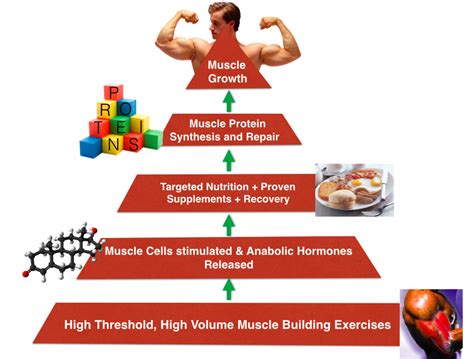Quizlet's Versatile Platform Empowers Learning and Knowledge Retention
In today's rapidly evolving educational landscape, students and educators alike seek innovative tools to enhance learning experiences and foster knowledge retention. Quizlet, a groundbreaking platform, emerges as a game-changer, offering a myriad of functionalities to revolutionize the way we study and retain information.
Unveiling the Challenges in Learning and Retention
Traditionally, learning often involves passive methods such as reading textbooks or attending lectures, which can be less effective in promoting deep understanding and long-term memory. Students struggle to actively engage with the material, leading to fragmented knowledge and difficulties in recalling information when needed.
Quizlet: A Multifaceted Learning Companion
Quizlet empowers learners by providing an interactive and engaging platform that addresses these pain points. Its diverse features cater to various learning styles and preferences, allowing users to create and utilize flashcards, practice games, and collaborative study sets. By harnessing the power of spaced repetition and gamification, Quizlet transforms learning into an active and enjoyable process, promoting knowledge retention and improving understanding.
Empowering Students and Educators
Through its comprehensive features, Quizlet caters to the needs of both students and educators. Students can independently create personalized study materials tailored to their specific learning goals. Educators can leverage Quizlet to create interactive lessons, assess student progress, and foster collaborative learning environments. The platform's extensive content library provides a vast repository of pre-made study sets, covering a wide range of subjects and topics, empowering users to access and share knowledge with others.
Testosterone: A Vital Hormone with Diverse Functions
Testosterone, produced primarily in the testicles in males and to a lesser extent in the ovaries in females, is a steroid hormone with a central role in the development and maintenance of various bodily functions.
1. Role in Sexual Development
Testosterone plays a crucial role in male sexual development and function, stimulating the growth of the penis and testes during puberty. It also helps maintain libido, sexual arousal, and erectile function.
2. 
Muscle Growth and Strength
Testosterone promotes muscle growth and strength by increasing protein synthesis and reducing protein breakdown. It stimulates the proliferation of satellite cells, which are essential for muscle repair and growth.
3. Bone Mineralization
Testosterone enhances bone mineral density, reducing the risk of osteoporosis. It stimulates the production of osteoblasts, cells responsible for bone formation, and inhibits osteoclasts, cells that break down bone.
4. Red Blood Cell Production
Testosterone stimulates the production of erythropoietin, a hormone that triggers red blood cell production in the bone marrow. This process increases oxygen availability to tissues.
5. Cognitive Function
Testosterone plays a role in cognitive function, particularly in spatial navigation, memory, and attention. It is thought to support the development and maintenance of neurons in the brain.
6. Energy Levels and Mood
Testosterone contributes to energy levels and mood regulation. It can enhance drive, ambition, and competitive spirit. Additionally, testosterone may have antidepressant effects.
7. 
Immunity
Testosterone has immunomodulatory effects, supporting the immune system's ability to fight infections. It enhances the production of T-cells and antibodies.
8. Cholesterol Metabolism
Testosterone influences cholesterol metabolism, increasing the levels of high-density lipoprotein (HDL) cholesterol and decreasing low-density lipoprotein (LDL) cholesterol. This effect helps maintain a healthy cholesterol profile.
9. Blood Pressure Regulation
Testosterone may play a role in blood pressure regulation. Some studies suggest that it can have antihypertensive effects, possibly by increasing nitric oxide production in the body.
10. Insulin Sensitivity
Testosterone enhances insulin sensitivity, allowing cells to take up glucose more efficiently. This can help prevent insulin resistance and improve blood sugar control.
11. 
Testosterone in Females
Although testosterone levels are significantly lower in females, it still plays important roles in female physiology. It contributes to bone density, muscle mass, libido, and cognitive function.
12. Testosterone Levels and Age
Testosterone levels decline with age, particularly in men. This can lead to various symptoms, including reduced muscle mass, decreased bone density, and lower libido. Testosterone replacement therapy may be considered in some cases.
13. Testosterone and Performance Enhancement
Testosterone is often used illegally by athletes to improve performance. However, this can have serious consequences, including increased risk of heart disease, stroke, and infertility.
14. Testosterone and Cancers
Testosterone levels may be related to the risk of certain cancers, such as prostate cancer in men and breast cancer in women. Monitoring testosterone levels is important for individuals with a family history of these cancers.
15. Conclusion
Testosterone is a vital hormone, playing diverse roles in male and female physiology. Its primary functions include regulating sexual development, promoting muscle growth, enhancing bone strength, and supporting cognitive function. Understanding the role of testosterone can help optimize health and well-being throughout life.
FAQs
- What is the normal range of testosterone levels in males?
- Between 300 and 1000 ng/dL.
- What can cause low testosterone levels?
- Age, certain medical conditions, and medications.
- Can testosterone therapy improve muscle mass?
- Yes, it can help increase muscle mass.
- Can high testosterone levels be harmful?
- Yes, they can increase the risk of prostate cancer and heart disease.
- Is it safe to use testosterone supplements?
- Testosterone supplements should only be used under medical supervision.
